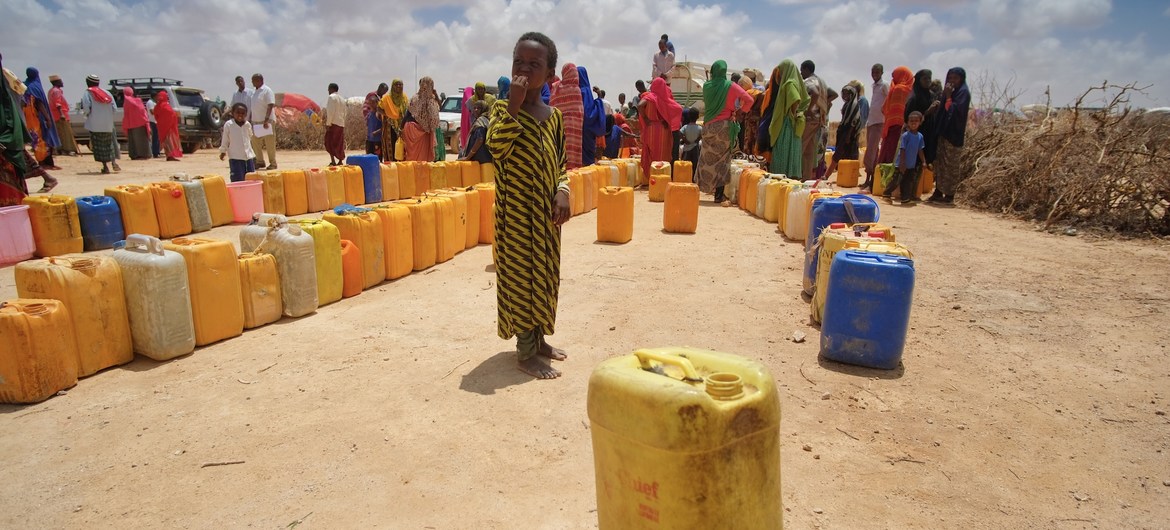
The political heat is rising in Somalia over the determination of President Mohamed Abdullahi Mohamed, known as Farmajo, to cling to power despite his term having ended in February. On April 12, he embraced a decision by the lower house of the Federal Parliament to extend his (and their) stay in office for an extra two years, to allow the running of delayed elections. The move was rejected by the Senate as “unconstitutional. The Senate called on Farmajo to rejoin UN-led talks—which he has rejected. As the crisis deepens, there are reports of a troop build-up in the capital and the fragmentation of the security forces. Yet this political tussle is being played out in the Mogadishu bubble. In the countryside, where the government holds little sway, a new drought emergency is underway. Almost 40,000 people have been forced from their homes in the first three months of the year due to poor rains, joining the 1.3 million displaced in 2020 by combined humanitarian disasters. Another bad rainy season is forecast for April-June, but donor funding is roughly $1 billion short of the appeal target.
From The New Humanitarian, April 16
Note: Farmajo was elected by parliament in 2017, and his rule has never been put to a popular vote. Regular elections for a president in Somalia have been repeatedly postponed, due to the reality that the government has no effective control over its claimed territory.
Photo: Joe English/UNICEF





Somalia back from the brink?
The crisis in Somalia, which saw armed clashes in Mogadishu late last month, seems to be de-escalating as President Mohamed Abdullahi Mohamed (“Farmajo”) agreed to abandon his term extension bid and allow Prime Minister Mohamed Hussein Roble to hold talks to broker a settlement. However, the plan for direct elections has been dropped. Earlier this month, parliament voted to reinstate indirect polls–whereby special delegates chosen by Somalia’s clan elders pick lawmakers who in turn choose the president. (TNH, Al Jazeera)
Shabaab take credit for Mogadishu cafe blast
Shabaab insurgents claimed responsibility for a deadly suicide bombing in Mogadishu that left several people dead at a popular cafe. Estimates have varied, but local reporting has placed the total number of killed people between four and 10. Casualties include both civilians and uniformed members of Somalia’s security forces. According to local sources, the cafe was popular among members of the country’s security apparatus. (LWJ)
Biden air-strikes on Somalia questioned
Top Democratic lawmakers took aim this week at the Biden administration’s recent airstrikes in Somalia, disputing the legal rationale for the operations. On July 23, a drone strike targeted Shabab fighters in the Galmudug area of northern Somalia, in support of an operation by the Danaab, an elite US-trained Somali commando force. Four days earlier, a similar strike was carried out at Galkayo, just to the north. (Politico, NYT)
Somalia political crisis deepens
President Mohamed Abdullahi Mohamed suspended Prime Minister Mohamed Hussein Roble over allegations of corruption and misuse of public land. Mohamed’s office had earlier accused Roble of “posing a serious threat to the electoral process” and of carrying out activities that violated his mandate.
Roble refused to accept the order and accused Mohamed of deploying troops to attack his office and those of the cabinet to prevent them from carrying out their duties. The moves, he said in a televised address, were “a blatant attempt to overthrow the government, the Constitution and the laws of the land.” (NYT)
New US drone strikes on Somalia
The United States conducted a drone strike against Shabab militants in Somalia this week, the first such military action against the Qaeda affiliate in East Africa since August, the Pentagon’s Africa Command says. The MQ-9 Reaper strike on Feb. 22 followed a Shabab attack on allied Somali forces in Duduble, about 40 miles northwest of Mogadishu. (NYT)
Somalia: what happened at al-Baraf?
The jihadist group al-Shabab claims to have carried out the deadliest attack to date on an African Union base in Somalia. The al-Qaeda-linked insurgents said they stormed and captured the al-Baraf base, 160 kilometres northeast of Mogadishu on May 3, killing 170 mainly Burundian soldiers. Some reports say at least 30 soldiers died in the fighting, while the AU denies al-Baraf fell. (TNH)